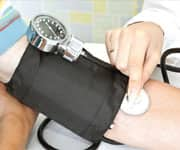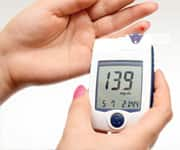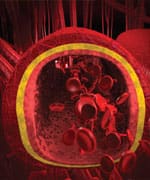Life Extension Magazine®

If you’re one of the 150 million Americans that drink coffee on a daily basis, we have good news for you.1 Despite decades of medical advice from organizations like the American Heart Association that coffee may be bad for your heart, breaking research has proven that moderate coffee consumption offers powerful protection against heart failure and stroke.2,3
Two exciting new studies provide dramatic insight into coffee’s health-giving benefits. Together, these studies show that coffee reduces the risk of both hemorrhagic and ischemic stroke by improving endothelial function (the mechanisms by which blood vessels retain their control over blood flow and pressure).2,3 Strokes, like heart attacks, are the consequences of disruptions in endothelial function that lead to sudden loss of blood flow, with devastating effects on surrounding tissues.4
Stroke is among the top three causes of death in the United States.5 Drinking 5 or more cups of coffee a day has been found to reduce risk of death from a stroke by 36%.6 With more than 140,000 people dying from stroke each year, that 36% risk reduction could save the lives of more than 50,000 people a year!5,6
But there are plenty of other healthy reasons to have your daily cup of coffee. Coffee reduces your risk of dying from heart disease, prevents diabetes, cuts cancer risk, and even reverses cognitive impairment in Alzheimer’s patients.6,7
Despite decades of medical advice that coffee was “bad for your heart,” new evidence is demonstrating just the opposite: Moderate coffee consumption can protect against heart attacks and subsequent heart failure.6,8
As with strokes, this is largely due to coffee’s favorable impact on endothelial function. Poor endothelial function increases your risk of heart attack (when the heart gets too little blood to meet its own needs) and heart failure (when the heart can no longer pump out enough blood to meet the body’s needs).9,10
Because coffee helps improve endothelial function, it not only helps protect you from a heart attack to begin with—but can also protect you from dying from cardiovascular disease.
A large study of more than 59,000 people conducted over 19 years provides powerful evidence of coffee’s protective effects against heart failure. The study found that women who consumed at least 1 cup of coffee per day had a reduction in heart failure of roughly 27% compared to those drinking no coffee.11 Another study found that 4 cups per day provides the strongest protection against heart failure in both men and women.12
Researchers found among women, drinking at least 2 cups of coffee per day was associated with protection of up to 25% against dying from cardiovascular disease.13 And in a group of patients (men and women) who had suffered the most common kind of heart attack, 96% of patients who were given coffee during their stay in the coronary care unit had a favorable increase in their heart rate variability, a measure of protection against premature cardiovascular death.14
Diabetic patients are at exceptionally high risk for heart attacks, largely because of the poor endothelial function induced by years of exposure to high glucose levels. A study of type II diabetics showed that those who consumed 5 or more cups of coffee daily were about 31% less likely to die from all causes and about 30% less likely to die from cardiovascular diseases, compared to those who drank no coffee.6
Coffee Drinking Slashes Stroke Risk

Endothelial dysfunction is a major risk factor for strokes because it impairs blood flow through the brain’s major arteries.15 Strokes, like heart attacks, are the consequences of disruptions in endothelial function that lead to sudden loss of blood flow, with devastating effects on surrounding tissues. People who’ve had strokes lose function in the affected brain regions, resulting in disorders of speech, balance, coordination, motor strength, and often cognition.
But recent evidence has indicated that coffee can improve endothelial function, reducing your risk of stroke.2,3 Studies show that coffee consumption is powerfully associated with reduced risk of both major kinds of stroke, ischemic (not enough blood to the affected areas of the brain) and hemorrhagic (bleeding from a major brain artery).3,16
A study of hemorrhagic stroke, conducted among patients with no prior stroke history, demonstrated that being a coffee drinker was associated with a 36% reduced risk of hemorrhage, compared with being a non-coffee drinker.16
Ischemic stroke is the more common variety.17 Compared with drinking 0 to 2 cups daily, people who drink 3 to 4 cups of coffee per day have a 23% lower risk of dying from a stroke. That risk reduction climbs to 36% in those who drink 5 to 6 cups a day.6 Similar studies found that women who consume 2 or more cups of coffee per day (caffeinated or decaf) have an overall 20% reduction in stroke risk.8,18
Animal studies help explain the reason behind this powerful protection against ischemic stroke. When scientists applied coffee-containing water to tiny blood vessels in mice, they discovered that it slows the time it takes for chemically stimulated platelets to block arteries, from just over 12 minutes to 46 minutes.19 That extra half-hour window could be the time it takes for a stroke victim to reach urgent medical care and avert a catastrophe.
Coffee Reduces the Risk and Impact of Diabetes

We’ve already seen that coffee can reduce the risk of cardiovascular disease in diabetics.6 But there’s strong evidence to show that moderate coffee consumption can lower your risk of developing diabetes in the first place.20-22
This benefit is especially seen among women. In a recently published study, for example, women consuming regular coffee (3 or more cups daily) had a 34% lower risk of developing diabetes than those who drank less than one cup per day, while men had only a borderline risk reduction.23
However, men can benefit from coffee consumption as well. An interventional study of men showed that drinking 5 cups of caffeinated coffee daily for 16 weeks decreased after-meal glucose concentrations by an average of 13% and total exposure to glucose by nearly 8%, along with a decrease in waist circumference.24 There were no changes in this study among the decaf or no coffee groups.
Interestingly, both of these studies only showed benefits in the groups drinking caffeinated coffee—and not in the decaf groups. However, at least one large study from researchers at Harvard Medical School found significant risk reductions for diabetes in women who consumed either caffeinated or decaffeinated coffee. This effect was not seen in those who consumed caffeinated soft drinks, indicating the protective effect of the components in coffee itself.25
Both caffeinated and decaffeinated coffees contain the ingredients that account for coffee’s health benefits, namely chlorogenic acid and trigonelline, a compound related to niacin (vitamin B3). In one study, both substances reduced blood glucose by 9 to 12 mg/dL; they also lowered insulin concentrations following an oral glucose tolerance test.26
Coffee’s non-caffeine components are associated with coffee’s anti-inflammatory actions, which likely contribute to the decreased diabetes risk. They have been shown, for example, to reduce levels of the inflammatory cytokines IL-18 and 8-isoprostane, while increasing the protective cytokine adiponectin. 20,27
Unfortunately, at this point, there isn’t enough information to make a firm recommendation about whether you should drink regular or decaffeinated coffee to lower diabetes risk.
What You Need to Know
 |
Health Benefits of Coffee
- Coffee is the most widely-consumed pharmacologically-active beverage in the world.
- Long suspected to be associated with poor health outcomes, coffee has now been shown to have a myriad of health benefits when consumed in moderation.
- Drinking up to five cups of coffee daily can protect you against many chronic, age-related diseases.
- Recent studies highlight coffee’s ability to boost endothelial function and reduce the risks of stroke and heart disease.
- Coffee and its components offer protection against diabetes, itself the cause of degraded endothelial function and cardiovascular diseases and cancer.
- Coffee helps protect against cancer and neurodegenerative disorders like Alzheimer’s and Parkinson’s diseases.
- In today’s world, there’s every reason to drink coffee liberally, not only without guilt, but secure in the knowledge that you are improving your health and preventing disease with every cup.
Coffee Cuts Cancer Risk
Cancer researchers bashed coffee-drinking for years because they believed it contributed to the growth of tumors.28 But now there’s substantial epidemiological evidence showing that coffee consumption in fact reduces the risk of many tumors.29 This is especially true of breast cancer.
Breast cancer is a very well-studied malignancy in terms of its relationship to coffee, in part because the same liver enzymes are involved in the metabolism of coffee compounds and estrogen, as well as the breast cancer drug tamoxifen.30,31
Coffee helps prevent the development of breast cancer by favorably increasing the ratio of estrogen’s protective metabolite2-hydroxyestrone compared to its more dangerous metabolite called 16-hydroxyestrone. An increase in 2-hydroxyestrone and reduction in 16-hydroxyestrone results in a hormonal environment less favorable to breast cancer development.32
Studies have now shown that coffee consumption slows the growth of treatable estrogen receptor-positive breast cancer, resulting in an older age at diagnosis.33 And among women with known cancer-causing mutations, consumption of caffeinated coffee is associated with a significant reduction in breast cancer risk.31
In one study, intake of at least 5 cups of coffee per day reduced breast cancer risk by 29%, reduced the risk of difficult-to-treat estrogen receptor-negative tumors by 59%, and reduced postmenopausal breast cancer by 37%. 34 This study found no impact of other caffeine-containing beverages, again highlighting the importance of the non-caffeine components of coffee.
Although research into other cancers and their association with coffee drinking is less detailed, the available evidence is still encouraging. Take a look:
- Studies reveal a decrease in the risk of endometrial cancer of up to 39% in women drinking at least 1 to 2 cups/day, and 62% in women drinking 3 or more cups/day.35, 36
- The risk of localized esophageal cancer was reduced by 60% among coffee drinkers in one study.37
- People with either hepatitis B or C infections or both (a high-risk population), who drink at least 3 cups of coffee daily reduce their risk of developing liver cancer by up to 39%.38
- Even those without such viral infections have a 44% lower risk of developing hepataocellular carcinoma, the most common liver cancer, when they drink 3 or more cups/day.39
- And the risk of localized prostate cancer has now been shown to decrease by 3% per cup of coffee per day, with higher risk reductions among overweight or obese men.40
Endothelial Function and Your Health
 |
Studies now show that poor endothelial function is a more accurate predictor of heart attack and stroke risk than most conventional risk markers (like lipid profiles and blood pressure).15,58-63
Your arteries are not simple rigid pipes, or even flexible hoses. They are living, dynamic structures that exert active control over the amount of blood that flows through them.
Arteries detect and respond to variations in blood flow and pressure through a complex signaling system that involves the ultra-thin layer of cells that line their inner surfaces: the endothelium. In health, the endothelium relays signals to the smooth muscle cells that form the actual walls of the arteries. When the endothelium signals “not enough blood flow,” the arterial wall relaxes, the artery dilates, and more blood flows.
But in cardiovascular disease, the endothelial function is impaired.4 People with endothelial dysfunction can’t relax their blood vessels appropriately, so they can’t deliver adequate blood flow to oxygen- and energy-starved tissues.
The result can be devastating. Early on, insufficient blood flow produces ischemia, or insufficient oxygenation of tissues. But in a blindingly short period of time, ischemic tissue dies, producing an infarction.
An infarction in the heart is a heart attack. An infarction in the brain is a stroke.
Optimizing your endothelial function is one of the best ways to lower your risk of succumbing to a stroke or heart attack. Studies now conclusively demonstrate that coffee, both decaf and regular, have powerful beneficial effects on endothelial function.2,18,64-68
Neurodegenerative Diseases Yield to Coffee
Neurodegenerative diseases in the US are rising at an alarming rate. A study published in April 2013 in the New England Journal of Medicine found that nearly 15% of Americans older than 70 suffer from dementia.41 The total monetary costs of dementia in the US as a whole is around $215 billion per year.
There’s now very strong epidemiological evidence that people who drink more coffee are protected against developing Parkinson’s and Alzheimer’s diseases, the most common forms of dementia.42-44 Studies show that coffee consumption lowers the risk for Parkinson’s by up to 74% and cuts the risk of Alzheimer’s and general cognitive decline by up to 51%.45-49
Animal studies reveal some of the basic mechanisms behind this powerful protection. One of the most important ways coffee produces this effect is by preventing type II diabetes. Since diabetes is a known risk factor for developing Alzheimer’s, preventing diabetes ultimately helps prevent Alzheimer’s. One study showed that decaffeinated green coffee improved insulin sensitivity and improved brain energy metabolism, both important factors in Alzheimer’s disease prevention.50
Caffeine appears to be one of the most important components of coffee that is responsible for this dramatic risk reduction. For example, when mice that were engineered to be at high risk for Alzheimer’s disease were given caffeine, they were protected from cognitive impairment.51 This protective effect was also seen in older mice that were already showing signs of cognitive impairment from Alzheimer’s, demonstrating an actual reversal of cognitive impairment and improvement in learning and memory.52
Caffeine also reduces both brain and plasma levels of the toxic Abeta protein (sometimes called the “Alzheimer’s protein” because it’s found in such high concentrations in the brains of Alzheimer’s patients).51-53 Remarkably, in both mice and humans, a single dose of caffeine (equivalent to 5 cups of coffee/day) quickly reduced both brain and plasma levels of toxic Abeta protein.43 This finding may represent the first true disease-modifying treatment of Alzheimer’s. (Current drug therapies can only reduce symptoms; they don’t produce changes in the disease process itself.)
But other components of coffee in addition to caffeine are essential and have been shown to work synergistically with caffeine to protect brain health and function, which means you can’t simply take caffeine pills (a bad idea for many reasons). One study demonstrated this dramatically: only caffeinated coffee—and neither caffeine alone nor decaffeinated coffee—protected against Alzheimer’s.54 Similarly, crude caffeine (a byproduct of coffee decaffeination that still retains non-caffeine components) but not caffeine itself, reduced Abeta levels and microscopic damage to brain memory centers. 55
Chlorogenic acid, a major non-caffeine coffee constituent, protected animals against chemically induced memory impairment—and also reversed cognitive impairments. 56 And eicosanoyl-5-hydroxytryptamide, another coffee component, has anti-inflammatory and antioxidant activities that can protect against Parkinson’s disease in animal models.57
Can Drinking Coffee Help You Live Longer?
 |
People who live well into their 90s are evidently doing something right, even if they are also blessed with good genes. Several studies have examined the dietary practices of centenarians and those who live to be 90-100 years seeking for clues to their surprising longevity.
Coffee drinking stands out among the dietary practices that correlate with great age.
A study comparing centenarians with sexa- and octogenarians found that centenarians consumed coffee significantly more frequently than the two younger groups.69 A second study among very elderly people in Rome found that consuming strong espresso coffee more than once a week reduced the risk of dying within 5 years by 79%; and more than 2 cups/week reduced that risk by 65%.70
In light of other studies showing that people of all ages who drink more coffee are less likely to die prematurely compared with those who drink less (or none),8,13 it’s hard to put down that coffee cup knowing it could earn you an extra five years of healthy, vigorous life even well into old age!
Summary
Coffee has undergone a dramatic scientific rehabilitation in the past decade, going from feared pariah to welcome ally in the quest for better health and longer life.
New studies provide dramatic insight into coffee’s health-giving benefits, with a special focus on its role in improving endothelial function, the mechanisms by which blood vessels retain their control over blood flow and pressure. By improving endothelial function, coffee can reduce your risk for stroke and heart attack.
Other benefits include a reduced risk for developing diabetes, cancer, and neurodegenerative diseases.
Protect yourself from the ravages of aging. Enjoy that next cup of coffee secure in the knowledge that you are not only producing no harm, but in fact are helping your body fend off some of the most dreaded consequences of aging.
If you have any questions on the scientific content of this article, please call a Life Extension® Health Advisor at 1-866-864-3027.
How to Boost Coffee’s Benefits
 |
There’s now compelling evidence that a combination of coffee consumption and green tea offers superior protection than either alone. A 2013 Japanese study found that people who drink 1 or more cups of coffee per day and who drink 2 or more cups of green tea daily have about a 23% lower risk of all strokes, 20% lower risk of ischemic strokes, and about 29% lower risk of hemorrhagic strokes, compared with those who drink neither beverage.3
Fortunately, there are excellent extracts available that contain the green tea polyphenols that confer protection.71,72
Caution: Caffeine consumption can transiently increase blood pressure and heart rate, though most individuals who regularly consume caffeine develop tolerance to these effects. Nevertheless, in very sensitive individuals, caffeine consumption can increase blood pressure significantly (e.g.10 mmHg or more). Caffeine appears to have a more pronounced blood pressure effect on overweight people older than age 70 years.87 To see if caffeine may be raising your blood pressure, check your blood pressure within 30 to 60 minutes of drinking a cup of caffeinated coffee or another caffeinated beverage. If your blood pressure increases by 10 mmHg or more, you may be sensitive to the blood pressure raising effects of caffeine and may want to cut down on caffeine consumption and substitute decaffeinated coffee.
New Polyphenol-Retaining Coffees Boost Health Benefits
 |
In their green, unroasted state, coffee beans are an incredibly rich source of health-promoting polyphenols, particularly chlorogenic acid. However, before these beans are consumed as brewed coffee, they are subjected to varying degrees of roasting—often at very elevated temperatures ranging from 375 to 440 degrees Fahrenheit. These extreme temperatures destroy an enormous amount of the beneficial polyphenols, leaving the standard coffee found on supermarket shelves substantially less healthful than it could be.
In order to preserve the green coffee bean’s original polyphenol content, a new, patented technique has been developed. Under controlled temperature conditions, the green coffee beans are first soaked in water and then drained before roasting.
Because many polyphenols, including chlorogenic acid, are water-soluble compounds, soaking the beans before roasting provides an opportunity to “capture” the polyphenols at a controlled temperature before the beans are exposed to polyphenol-destroying high-temperature roasting.73,74 After roasting, the beans are “quenched,” meaning that they are placed back in the polyphenol-rich water retained from the pre-soaking phase before roasting. The result is that the beans reabsorb the polyphenols from the water, and much of their original polyphenol content is “rescued.”74
This process results in a roasted coffee bean displaying all the desired flavor and richness of traditional roasted coffee, but with a substantial increase in its content of polyphenols, especially chlorogenic acid. In fact, the final brewed beverage has been found to contain as much as a 120% increase in polyphenols overall, and up to an astonishing 250% increase in chlorogenic acid content versus standard roasting procedures. 74
Studies show that, for maximum health benefit, you would need to drink anywhere from 4 to 12 cups of conventional coffee daily.75-86 That’s a lot of coffee to drink and for many people, consuming that much may result in unpleasant side effects. The advantage of these newer “polyphenol-retaining” coffees, with twice the chlorogenic acid content, is their potential to deliver similar benefits in only half the number of cups.
Editor's Note
Science continues to evolve, and new research is published daily. As such, we have a more recent article on this topic: Coffee Protects Against DNA Damage
References
- Patil H, Lavie CJ, O’Keefe JH. Cuppa joe: friend or foe? Effects of chronic coffee consumption on cardiovascular and brain health. Mo Med. 2011 Nov-Dec;108(6):431-8.
- Siasos G, Oikonomou E, Chrysohoou C, et al. Consumption of a boiled Greek type of coffee is associated with improved endothelial function: The Ikaria Study. Vasc Med. 2013 Mar 18.
- Kokubo Y, Iso H, Saito I, et al. The impact of green tea and coffee consumption on the reduced risk of stroke incidence in Japanese population: The Japan Public Health Center-Based Study Cohort. Stroke. 2013 Mar 14.
- Roquer J, Segura T, Serena J, Castillo J. Endothelial dysfunction, vascular disease and stroke: the ARTICO study. Cerebrovasc Dis. 2009;27 Suppl 1:25-37.
- Available at: http://www.strokecenter.org/patients/about-stroke/stroke-statistics. Accessed April 11, 2013.
- Bidel S, Hu G, Qiao Q, Jousilahti P, Antikainen R, Tuomilehto J. Coffee consumption and risk of total and cardiovascular mortality among patients with type 2 diabetes. Diabetologia. 2006 Nov;49(11):2618-26.
- Butt MS, Sultan MT. Coffee and its consumption: benefits and risks. Crit Rev Food Sci Nutr. 2011 Apr;51(4):363-73.
- Lopez-Garcia E. Coffee consumption, myocardial infarction and stroke: what is the association? Womens Health (Lond Engl). 2011 May;7(3):265-7.
- Bauersachs J, Schäfer A. Endothelial dysfunction in heart failure: mechanisms and therapeutic approaches. Curr Vasc Pharmacol. 2004 Apr;2(2):115-24.
- Heitzer T, Schlinzig T, Krohn K, Meinertz T, Münzel T. Endothelial dysfunction, oxidative stress, and risk of cardiovascular events in patients with coronary artery disease. Circulation. 2001 Nov 27;104(22):2673-8.
- Wang Y, Tuomilehto J, Jousilahti P, et al. Coffee consumption and the risk of heart failure in Finnish men and women. Heart. 2011 Jan;97(1):44-8.
- Mostofsky E, Rice MS, Levitan EB, Mittleman MA. Habitual coffee consumption and risk of heart failure: a dose-response meta-analysis. Circ Heart Fail. 2012 Jul 1;5(4):401-5.
- Lopez-Garcia E, van Dam RM, Li TY, Rodriguez-Artalejo F, Hu FB. The relationship of coffee consumption with mortality. Ann Intern Med. 2008 Jun 17;148(12):904-14.
- Richardson T, Baker J, Thomas PW, Meckes C, Rozkovec A, Kerr D. Randomized control trial investigating the influence of coffee on heart rate variability in patients with ST-segment elevation myocardial infarction. QJM. 2009 Aug;102(8):555-61.
- Sunbul M, Ozben B, Durmus E, et al. Endothelial dysfunction is an independent risk factor for stroke patients irrespective of the presence of patent foramen ovale. Herz. 2013 Feb 16.
- Thrift AG, McNeil JJ, Forbes A, Donnan GA. Risk factors for cerebral hemorrhage in the era of well-controlled hypertension. Melbourne Risk Factor Study (MERFS) Group. Stroke. 1996 Nov;27(11):2020-5.
- Available at: http://www.strokecenter.org/patients/about-stroke/ischemic-stroke. Accessed April 16, 2013.
- Lopez-Garcia E, Rodriguez-Artalejo F, Rexrode KM, Logroscino G, Hu FB, van Dam RM. Coffee consumption and risk of stroke in women. Circulation. 2009 Mar 3;119(8):1116-23.
- Toda E, Ishida H, Aoki T, et al. Possible mechanism of preventive effects of coffee intake on the formation of arterial occlusive thrombosis. Tokai J Exp Clin Med. 2010 Dec;35(4):133-6.
- Kempf K, Herder C, Erlund I, et al. Effects of coffee consumption on subclinical inflammation and other risk factors for type 2 diabetes: a clinical trial. Am J Clin Nutr. 2010 Apr;91(4):950-7.
- Floegel A, Pischon T, Bergmann MM, Teucher B, Kaaks R, Boeing H. Coffee consumption and risk of chronic disease in the European Prospective Investigation into Cancer and Nutrition (EPIC)-Germany study. Am J Clin Nutr. 2012 Apr;95(4):901-8.
- Muley A, Muley P, Shah M. Coffee to reduce risk of type 2 diabetes?: a systematic review. Curr Diabetes Rev. 2012 May;8(3):162-8.
- 23 Doo T, Morimoto Y, Steinbrecher A, Kolonel LN, Maskarinec G. Coffee intake and risk of type 2 diabetes: the Multiethnic Cohort. Public Health Nutr. 2013 Feb 27:1-9.
- Ohnaka K, Ikeda M, Maki T, et al. Effects of 16-week consumption of caffeinated and decaffeinated instant coffee on glucose metabolism in a randomized controlled trial. J Nutr Metab. 2012;2012:207426.
- Bhupathiraju SN, Pan A, Malik VS, et al. Caffeinated and caffeine-free beverages and risk of type 2 diabetes. Am J Clin Nutr. 2013 Jan;97(1):155-66.
- van Dijk AE, Olthof MR, Meeuse JC, Seebus E, Heine RJ, van Dam RM. Acute effects of decaffeinated coffee and the major coffee components chlorogenic acid and trigonelline on glucose tolerance. Diabetes Care. 2009 Jun;32(6):1023-5.
- Wedick NM, Brennan AM, Sun Q, Hu FB, Mantzoros CS, van Dam RM. Effects of caffeinated and decaffeinated coffee on biological risk factors for type 2 diabetes: a randomized controlled trial. Nutr J. 2011;10:93.
- Ames BN, Gold LS. The causes and prevention of cancer: gaining perspective. Environ Health Perspect. 1997 Jun;105 Suppl 4:865-73.
- Isshiki M, Ohta H, Tamura H. Coffee reduces SULT1E1 expression in human colon carcinoma Caco-2 cells. Biol Pharm Bull. 2013;36(2):299-304.
- Simonsson M, Soderlind V, Henningson M, et al. Coffee prevents early events in tamoxifen-treated breast cancer patients and modulates hormone receptor status. Cancer Causes Control. 2013 Feb 15.
- Kotsopoulos J, Ghadirian P, El-Sohemy A, et al. The CYP1A2 genotype modifies the association between coffee consumption and breast cancer risk among BRCA1 mutation carriers. Cancer Epidemiol Biomarkers Prev. 2007 May;16(5):912-6.
- Klug TL, Bageman E, Ingvar C, Rose C, Jernstrom H. Moderate coffee and alcohol consumption improves the estrogen metabolite profile in adjuvant treated breast cancer patients: a pilot study comparing pre- and post-operative levels. Mol Genet Metab. 2006 Dec;89(4):381-9.
- Bageman E, Ingvar C, Rose C, Jernstrom H. Coffee consumption and CYP1A2*1F genotype modify age at breast cancer diagnosis and estrogen receptor status. Cancer Epidemiol Biomarkers Prev. 2008 Apr;17(4):895-901.
- Lowcock EC, Cotterchio M, Anderson LN, Boucher BA, El-Sohemy A. High Coffee Intake, but Not Caffeine, is Associated with Reduced Estrogen Receptor Negative and Postmenopausal Breast Cancer Risk with No Effect Modification by CYP1A2 Genotype. Nutr Cancer. 2013 Apr;65(3):398-409.
- Shimazu T, Inoue M, Sasazuki S, et al. Coffee consumption and risk of endometrial cancer: a prospective study in Japan. Int J Cancer. 2008 Nov 15;123(10):2406-10.
- Giri A, Sturgeon SR, Luisi N, Bertone-Johnson E, Balasubramanian R, Reeves KW. Caffeinated coffee, decaffeinated coffee and endometrial cancer risk: a prospective cohort study among US postmenopausal women. Nutrients. 2011 Nov;3(11):937-50.
- Chen YK, Lee CH, Wu IC, et al. Food intake and the occurrence of squamous cell carcinoma in different sections of the esophagus in Taiwanese men. Nutrition. 2009 Jul-Aug;25(7-8):753-61.
- Inoue M, Kurahashi N, Iwasaki M, et al. Effect of coffee and green tea consumption on the risk of liver cancer: cohort analysis by hepatitis virus infection status. Cancer Epidemiol Biomarkers Prev. 2009 Jun;18(6):1746-53.
- Johnson S, Koh WP, Wang R, Govindarajan S, Yu MC, Yuan JM. Coffee consumption and reduced risk of hepatocellular carcinoma: findings from the Singapore Chinese Health Study. Cancer Causes Control. 2011 Mar;22(3):503-10.
- Discacciati A, Orsini N, Andersson SO, et al. Coffee consumption and risk of localized, advanced and fatal prostate cancer: a population-based prospective study. Ann Oncol. 2013 Mar 18.
- Hurd MD, Martorell P, Delavande A, Mullen KJ, Langa KM. Monetary costs of dementia in the United States. N Engl J Med. 2013;368(14):1326-34.
- Lindsay J, Laurin D, Verreault R, et al. Risk factors for Alzheimer’s disease: a prospective analysis from the Canadian Study of Health and Aging. Am J Epidemiol. 2002 Sep 1;156(5):445-53.
- Arendash GW, Cao C. Caffeine and coffee as therapeutics against Alzheimer’s disease. J Alzheimers Dis. 2010;20 Suppl 1:S117-26.
- Noyce AJ, Bestwick JP, Silveira-Moriyama L, et al. Meta-analysis of early nonmotor features and risk factors for Parkinson disease. Ann Neurol. 2012 Dec;72(6):893-901.
- Saaksjarvi K, Knekt P, Rissanen H, Laaksonen MA, Reunanen A, Mannisto S. Prospective study of coffee consumption and risk of Parkinson’s disease. Eur J Clin Nutr. 2008 Jul;62(7):908-15.
- Nicoletti A, Pugliese P, Nicoletti G, et al. Voluptuary habits and clinical subtypes of Parkinson’s disease: the FRAGAMP case-control study. Mov Disord. 2010 Oct 30;25(14):2387-94.
- Santos C, Costa J, Santos J, Vaz-Carneiro A, Lunet N. Caffeine intake and dementia: systematic review and meta-analysis. J Alzheimers Dis. 2010;20 Suppl 1:S187-204.
- Santos C, Lunet N, Azevedo A, de Mendonca A, Ritchie K, Barros H. Caffeine intake is associated with a lower risk of cognitive decline: a cohort study from Portugal. J Alzheimers Dis. 2010;20 Suppl 1:S175-85.
- Liu R, Guo X, Park Y, et al. Caffeine intake, smoking, and risk of Parkinson disease in men and women. Am J Epidemiol. 2012 Jun 1;175(11):1200-7.
- Ho L, Varghese M, Wang J, et al. Dietary supplementation with decaffeinated green coffee improves diet-induced insulin resistance and brain energy metabolism in mice. Nutr Neurosci. 2012 Jan;15(1):37-45.
- Arendash GW, Schleif W, Rezai-Zadeh K, et al. Caffeine protects Alzheimer’s mice against cognitive impairment and reduces brain beta-amyloid production. Neuroscience. 2006 Nov 3;142(4):941-52.
- Arendash GW, Mori T, Cao C, et al. Caffeine reverses cognitive impairment and decreases brain amyloid-beta levels in aged Alzheimer’s disease mice. J Alzheimers Dis. 2009;17(3):661-80.
- Cao C, Cirrito JR, Lin X, et al. Caffeine suppresses amyloid-beta levels in plasma and brain of Alzheimer’s disease transgenic mice. J Alzheimers Dis. 2009;17(3):681-97.
- Cao C, Wang L, Lin X, et al. Caffeine synergizes with another coffee component to increase plasma GCSF: linkage to cognitive benefits in Alzheimer’s mice. J Alzheimers Dis. 2011;25(2):323-35.
- Chu YF, Chang WH, Black RM, et al. Crude caffeine reduces memory impairment and amyloid beta(1-42) levels in an Alzheimer’s mouse model. Food Chem. 2012 Dec 1;135(3):2095-102.
- Kwon SH, Lee HK, Kim JA, et al. Neuroprotective effects of chlorogenic acid on scopolamine-induced amnesia via anti-acetylcholinesterase and anti-oxidative activities in mice. Eur J Pharmacol. 2010 Dec 15;649(1-3):210-7.
- Lee KW, Im JY, Woo JM, et al. Neuroprotective and anti-inflammatory properties of a coffee component in the MPTP model of Parkinson’s disease. Neurotherapeutics. 2013 Jan;10(1):143-53.
- Takishima I, Nakamura T, Hirano M, et al. Predictive value of serial assessment of endothelial function in chronic heart failure. Int J Cardiol. 2012 Jul 26;158(3):417-22.
- Akiyama E, Sugiyama S, Matsuzawa Y, et al. Incremental prognostic significance of peripheral endothelial dysfunction in patients with heart failure with normal left ventricular ejection fraction. J Am Coll Cardiol. 2012 Oct 30;60(18):1778-86.
- Lind L, Berglund L, Larsson A, Sundstrom J. Endothelial function in resistance and conduit arteries and 5-year risk of cardiovascular disease. Circulation. 2011 Apr 12;123(14):1545-51.
- Chen SM, Tsai TH, Hang CL, et al. Endothelial dysfunction in young patients with acute ST-elevation myocardial infarction. Heart Vessels. 2011 Jan;26(1):2-9.
- Anderson TJ, Charbonneau F, Title LM, et al. Microvascular function predicts cardiovascular events in primary prevention: long-term results from the Firefighters and Their Endothelium (FATE) study. Circulation. 2011 Jan 18;123(2):163-9.
- de Berrazueta JR, Guerra-Ruiz A, Garcia-Unzueta MT, et al. Endothelial dysfunction, measured by reactive hyperaemia using strain-gauge plethysmography, is an independent predictor of adverse outcome in heart failure. Eur J Heart Fail. 2010 May;12(5):477-83.
- Bohn SK, Ward NC, Hodgson JM, Croft KD. Effects of tea and coffee on cardiovascular disease risk. Food Funct. 2012 Jun;3(6):575-91.
- Buscemi S, Batsis JA, Arcoleo G, Verga S. Coffee and endothelial function: a battle between caffeine and antioxidants? Eur J Clin Nutr. 2010 Oct;64(10):1242-3.
- Buscemi S, Verga S, Batsis JA, et al. Dose-dependent effects of decaffeinated coffee on endothelial function in healthy subjects. Eur J Clin Nutr. 2009 Oct;63(10):1200-5.
- Lopez-Garcia E, van Dam RM, Qi L, Hu FB. Coffee consumption and markers of inflammation and endothelial dysfunction in healthy and diabetic women. Am J Clin Nutr. 2006 Oct;84(4):888-93.
- Umemura T, Ueda K, Nishioka K, et al. Effects of acute administration of caffeine on vascular function. Am J Cardiol. 2006 Dec 1;98(11):1538-41.
- Houston DK, Johnson MA, Poon LW, Clayton GM. Individual foods and food group patterns of the oldest old. J Nutr Elder. 1994;13(4):5-23.
- Fortes C, Forastiere F, Farchi S, Rapiti E, Pastori G, Perucci CA. Diet and overall survival in a cohort of very elderly people. Epidemiology. 2000 Jul;11(4):440-5.
- Ikeda M, Suzuki C, Umegaki K, Saito K, Tabuchi M, Tomita T. Preventive effects of green tea catechins on spontaneous stroke in rats. Med Sci Monit. 2007 Feb;13(2):BR40-5.
- Wu KJ, Hsieh MT, Wu CR, Wood WG, Chen YF. Green tea
extract ameliorates learning and memory deficits in ischemic rats via its active component polyphenol epigallocatechin-3-
gallate by modulation of oxidative stress and neuroinflammation. Evid Based Complement Alternat Med. 2012;2012:163106. - Available at: http://ntp.niehs.nih.gov/ntp/htdocs/chem_background/exsumpdf/chlorogenicacid.pdf. Accessed April 17, 2013.
- Available at: http://www.google.com/patents/us20100183790?printsec=abstract#v=onepage&q&f=false. Accessed April 17, 2013.
- Wu JN, Ho SC, Zhou C, et al. Coffee consumption and risk of coronary heart diseases: a meta-analysis of 21 prospective cohort studies. Int J Cardiol. 2009 Nov 12;137(3):216-25.
- Mukamal KJ, Hallqvist J, Hammar N, et al. Coffee consumption and mortality after acute myocardial infarction: the Stockholm Heart Epidemiology Program. Am Heart J. 2009 Mar;157(3):495-501.
- Wilson KM, Kasperzyk JL, Rider JR, et al. Coffee consumption and prostate cancer risk and progression in the Health Professionals Follow-up Study. J Natl Cancer Inst. 2011 Jun 8;103(11):876-84.
- Li J, Seibold P, Chang-Claude J, et al. Coffee consumption modifies risk of estrogen-receptor negative breast cancer. Breast Cancer Res. 2011;13(3):R49.
- Inoue M, Yoshimi I, Sobue T, Tsugane S. Influence of coffee drinking on subsequent risk of hepatocellular carcinoma: a prospective study in Japan. J Natl Cancer Inst. 2005 Feb 16;97(4):293-300.
- Huxley R, Lee CM, Barzi F, et al. Coffee, decaffeinated coffee, and tea consumption in relation to incident type 2 diabetes mellitus: a systematic review with meta-analysis. Arch Intern Med. 2009 Dec 14;169(22):2053-63.
- Rosengren A, Dotevall A, Wilhelmsen L, Thelle D, Johansson S. Coffee and incidence of diabetes in Swedish women: a prospective 18-year follow-up study. J Intern Med. 2004 Jan;255(1):89-95.
- Tuomilehto J, Hu G, Bidel S, Lindstrom J, Jousilahti P. Coffee consumption and risk of type 2 diabetes mellitus among middle-aged Finnish men and women. JAMA. 2004 Mar 10;291(10):1213-9.
- Corrao G, Zambon A, Bagnardi V, D’Amicis A, Klatsky A. Coffee, caffeine, and the risk of liver cirrhosis. Ann Epidemiol. 2001 Oct;11(7):458-65.
- Klatsky AL, Morton C, Udaltsova N, Friedman GD. Coffee, cirrhosis, and transaminase enzymes. Arch Intern Med. 2006 Jun 12;166(11):1190-5.
- Arendash GW, Cao C. Caffeine and coffee as therapeutics against Alzheimer’s disease. J Alzheimers Dis. 2010;20 Suppl 1:S117-26.
- Maia L, de Mendonca A. Does caffeine intake protect from Alzheimer’s disease? Eur J Neurol. 2002 Jul;9(4):377-82.
- Giggey PP, Wendell CR, Zonderman AB, Waldstein SR. Greater coffee intake in men is associated with steeper age-related increases in blood pressure. Am J Hypertens. 2011 Mar;24(3):310-5.

